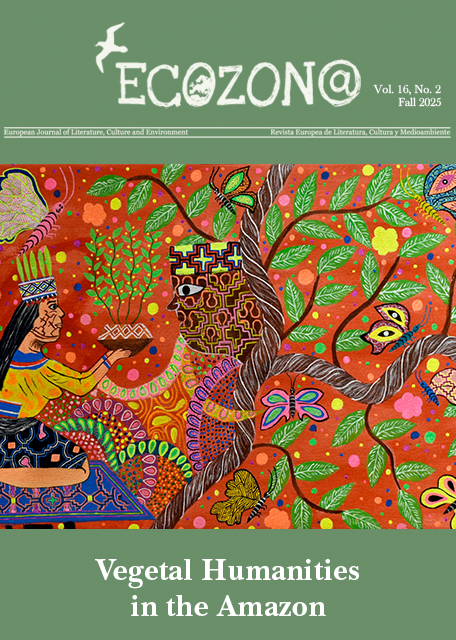Reclaiming 'The Land', Restoring 'The Garden'? Georgian Georgic in the Modernist Moment and Beyond
DOI:
https://doi.org/10.37536/ECOZONA.2021.12.2.4210Schlagworte:
Sackville-West, Georgian poetry, labour, T.S. Eliot, modernismAbstract
To scrutinize georgic’s position between progress and tradition, this article will focus on the way those forces become legible in poems composed between the end of the First and Second World Wars. I will examine Vita Sackville-West’s long georgics The Land (1926) and The Garden (1946) to argue that they indicate the scope of what is possible in the genre given the challenges of both modernity and modernism. Her poems demonstrate that, in seeking to navigate the changing material and cultural landscapes, the labour of maintaining an imaginative tradition can be both productive and problematic. The article will assess the way Sackville-West positions herself as a writer in relation to the figures of the agricultural labourer and gardener and to the classical tradition, as well as her claims about the language in which georgic can and should be written. Each poem will also be compared to the poetry and criticism of her modernist contemporary T.S. Eliot, with particular reference to The Waste Land, Four Quartets and his essay “Tradition and the Individual Talent.” Engaged in a struggle on both agricultural and cultural fronts, The Land and The Garden are prone to inconsistency and, even by their own standards, failure. But in these failures as well as their successes both poems are committed to finding a way of writing human engagement with the land and literature. As such, they can be instructively read in the present moment to prompt questions about the way we engage with land and language in the Anthropocene, negotiating between competing modes of writing and more broadly between natural and human agency.
Downloads
Downloads
Veröffentlicht
Ausgabe
Rubrik
Lizenz
Authors who publish with this journal agree to the following terms:
a) Authors retain copyright and grant the journal right of first publication with the work simultaneously licensed under a Creative Commons Attribution License that allows others to share the work with an acknowledgement of the work's authorship and initial publication in this journal (CC BY-NC for articles and CC BY-NC-ND for creative work, unless author requests otherwise.
b) Authors are able to enter into separate, additional contractual arrangements for the non-exclusive distribution of the journal's published version of the work (e.g., post it to an institutional repository or publish it in a book), with an acknowledgement of its initial publication in this journal.
c) Authors are permitted and encouraged to post their work online (e.g., in institutional repositories or on their website) prior to and during the submission process, as it can lead to productive exchanges, as well as earlier and greater citation of published work (See The Effect of Open Access).










